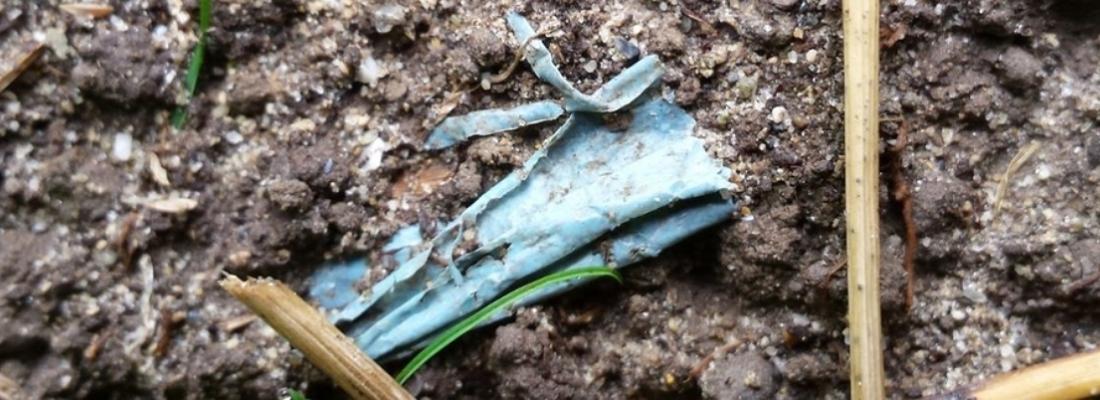Agroecology Reading time 3 min
MINAGRIS project: Exploring impacts of plastic debris on soil health and agricultural productivity
Published on 22 November 2021

Plastic is widely used in agriculture, from mulch for weed control that frequently contains plastic, to tractor tyres and certain agrochemicals. However, the impact of plastic debris in soils is poorly understood, particularly its impact when combined with other contaminants such as pesticides and pharmaceutical products.
The Micro- and Nano-plastics in Agricultural Soils (MINAGRIS) project will study the impact of plastic debris on soil health using 11 case studies in Europe. One of the case studies will be located in France and led by the Agroecology Joint Research Unit in partnership with a number of agricultural-community stakeholders. Once the impact of plastics on soil health has been established, the project will provide farmers and other stakeholders with tools and advice on how to determine their level of exposure and how to stop using plastic products.
In France, the Agroecology Joint Research Unit will conduct a field trial to assess the impact of microplastics on soil microorganisms and on crop plants. The Unit will also be involved in two work groups: one assessing the risks of microplastics to soil microbial diversity and the ecological functions it supports; and the other evaluating the impact of microplastics on pesticide biodegradation and the soil’s natural purification function. The Unit, and other MINAGRIS partners in Europe, will be involved in disseminating research findings and will develop advice for farmers on the use of plastic in agriculture.
Fabrice Martin-Laurent, director of the Agroecology Joint Research Unit who will lead MINAGRIS work in France together with Aymé Spor, INRAE research scientist, said “the project is very interesting because we have a considerable body of research on the impact of plastics in aquatic environments, but very little information on the impact to soils, which are home to millions of microbial species and one third of all species overall. We hope to contribute to better understanding of the environmental impacts of plastic on the diversity and function of soil microorganisms so we can identify ways to help reduce farm producers’ reliance on products that contain plastic.”
To find out more on MINAGRIS, click here and follow the project on Twitter (@minagris_EU).
Reference:
1 Microplastics in freshwater and terrestrial environments: Evaluating the current understanding to identify the knowledge gaps and future research priorities. https://www.sciencedirect.com/science/article/abs/pii/S0048969717302073
